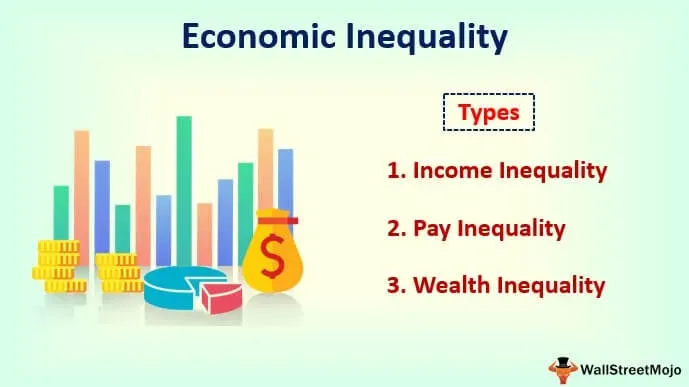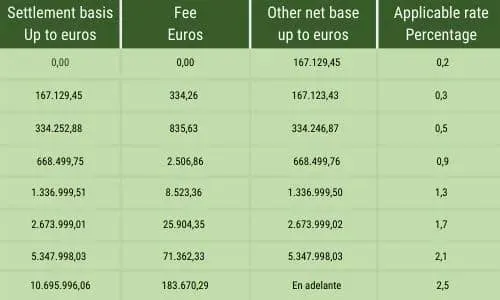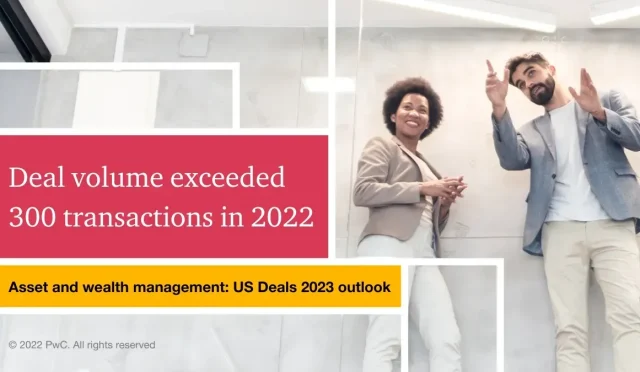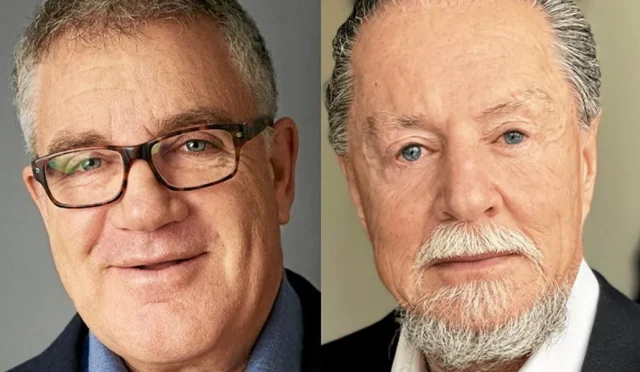Economic Inequality: Americans Demand Fairer Wealth Distribution
Economic inequality remains a pressing issue in the United States, as highlighted by the TNR Wealth Poll, which reveals alarming statistics about wealth distribution. The poll shows that a significant majority of Americans feel the richest continue to amass wealth at the expense of the middle class and the poor, further fueling discussions around the taxation of the rich. Senator Bernie Sanders has been a vocal advocate for reforming this disparity, emphasizing that billionaires like Elon Musk should not hold more wealth than the bottom segments of society. The results of the poll indicate an overwhelming consensus that the current wealth distribution is not only unfair but detrimental to the country’s moral fabric. With 72% of respondents believing that the rich have too much wealth, it is clear that Americans are ready to confront economic inequality head-on and demand a fairer system for all.
Wealth disparity is often described as the gap between the affluent and the less privileged within society, highlighting a broken system that favors a small percentage of individuals. As public sentiment shifts, more citizens are becoming aware of the need for equitable wealth distribution, calling into question the effectiveness of taxation policies aimed at the wealthy. In this context, Americans, including many Republicans and independents, are increasingly supportive of taxing the wealthiest to ensure that financial burdens are shared fairly across all income groups. This growing sense of urgency is indicative of a broader movement toward addressing economic injustices, as demonstrated by the resounding support for figures like Bernie Sanders, who champion such progressive stances. As the conversation about wealth inequality deepens, it reinforces the idea that a sustainable economy must prioritize the well-being of the entire population, not just the elite few.
Understanding Economic Inequality in America
Economic inequality has become a prominent topic in the United States, especially following the recent TNR Wealth Poll results that indicate a stark disparity in wealth distribution. Many Americans are increasingly aware of the concentration of wealth among the richest individuals, with figures illustrating that the top 1% holds more wealth than the bottom 90%. Such findings resonate with the sentiment voiced by political figures like Bernie Sanders, who emphasizes the need for systemic change to address these imbalances. This growing awareness may serve as a pivotal moment in the fight for economic justice, urging citizens to reflect on the socio-economic dynamics that fuel this inequality.
The term ‘economic inequality’ encapsulates a range of issues, from wage stagnation among the middle class to the exorbitant wealth accumulated by billionaires. Surveys consistently reveal that Americans not only recognize these disparities but are also unhappy with them. For instance, the TNR Wealth Poll found that a startling 78% of respondents believe the rich have gained ‘much more’ than the middle class over the last 40 years. This perception fuels public demand for progressive tax reforms aimed at ensuring a fair distribution of wealth and resources.
The Call for Taxation of the Rich
The discourse surrounding the taxation of the wealthy remains a contentious issue in American politics. According to the TNR Wealth Poll, an overwhelming two-thirds of respondents, including a notable percentage of Republicans, feel that the top 0.1% wealth holders are paying ‘too little’ in taxes. This sentiment is echoed in the statements made by figures like Bernie Sanders, who argues that the super-rich should contribute their fair share to alleviate the financial burdens on working-class families. Such calls for tax reform seek to reduce economic inequality and provide greater financial stability for the lower and middle classes.
Moreover, the concept of wealth taxation is not merely an ideological stance; it reflects a practical approach to addressing wealth disparities. By implementing higher tax rates on the affluent, funding could be allocated to improve public services, education, and healthcare—areas severely impacted by the growing wealth gap. As voters express a desire for a fairer tax system, this chart from the TNR Wealth Poll underscores a widespread belief that tax policies need to be restructured to reflect the realities of an increasingly unequal society.
Public Perception of Wealth Distribution
The data from the TNR Wealth Poll reveals a significant disconnect between public perception and the actual distribution of wealth in America. A striking 43% of respondents correctly identified that the bottom 50% of American families collectively own only 2% of the total wealth. This illustrates the level of awareness among voters regarding wealth inequality and their concerns about the sustainability of the current economic framework. Such clear insights suggest that voters are not just passive observers; they recognize stark disparities and are likely to advocate for change.
Interestingly, the poll also indicates that many respondents have clear views on how wealth should be distributed, reflecting broader values about economic fairness. For example, the majority believe that the wealth held by the super-rich should be reduced, with 40% stating that the top 0.1% should own less than 10% of the nation’s total wealth. This perspective aligns with the calls from progressives like Bernie Sanders, who challenge the status quo and push for policies that ensure a more equitable wealth allocation that serves to benefit the wider population.
Political Implications of Wealth Poll Findings
The findings from the TNR Wealth Poll carry significant political implications, particularly for candidates seeking to address economic inequality in their platforms. With a clear majority of Americans expressing concern about the concentration of wealth among the richest individuals, politicians who advocate for the taxation of the wealthy may find increased support from a diverse voter base. Figures such as Bernie Sanders have successfully energized many constituents by emphasizing these issues, suggesting a growing political movement favoring reform.
This alignment of voter sentiment with certain political policies indicates that there may be a strategic opportunity for Democrats and other progressive candidates to leverage the poll findings to their advantage. Given the widespread frustration with economic inequality, candidates who promote policies aimed at reducing the wealth gap may resonate more strongly with voters. Such momentum could drive electoral successes and enact meaningful changes aimed at a fairer economic landscape.
The Role of Independent Voters in Economic Discussions
Independent voters have emerged as a critical demographic in the current political landscape, particularly regarding discussions around economic inequality. According to the TNR Wealth Poll, independents expressed even more progressive views on wealth distribution compared to Democrats, with over half believing that the bottom 50% should hold 50% or more of the nation’s wealth. This trend suggests a potential shift in the political conversation, highlighting a desire for significant reform that transcends traditional party lines.
As independents increasingly align with progressive ideas about taxation and wealth distribution, their influence could reshape political strategies for upcoming elections. Candidates who ignore this growing sentiment may risk alienating a substantial voting block. Understanding the concerns of independent voters—particularly regarding economic inequality—can provide a pathway to rally support for policies that aim to address wealth gaps and promote a more equitable society.
The Impact of Wealth Inequality on Voting Behavior
Wealth inequality significantly influences voting behavior in the United States, as the TNR Wealth Poll indicates widespread discontent with the current economic system. Voters’ perceptions of wealth distribution can directly impact their electoral choices, particularly when candidates prioritize policies that seek to challenge economic disparities. The stark realization that the top 1% holds a disproportionate share of wealth informs how citizens engage with political discourse and ultimately vote.
When the majority of Americans feel squeezed economically, they are more likely to support candidates who advocate for reforms aimed at reducing inequality. The TNR Wealth Poll reflects this sentiment, demonstrating that voters overwhelmingly favor higher taxes on the wealthy to redistribute resources more equitably. Such preferences among the electorate indicate a significant shift towards valuing policies that prioritize the wellbeing of the broader population over that of a select few, which could radically change the political landscape in the coming years.
Economic Indicators and the Shape of Future Policies
The economic indicators revealed in the TNR Wealth Poll suggest a pressing need for policymakers to address the stark inequalities that have become increasingly visible in American society. As respondents articulate a preference for higher taxation on the affluent, the implication is clear: the current tax structure may no longer be tenable in a society where wealth is so disproportionately concentrated. The understanding that economic health is tied to equitable wealth distribution is a critical insight for future policy formulation.
Moreover, as the public becomes more informed about the realities of wealth distribution, it is likely that there will be an amplified push for comprehensive policy changes aimed at redressing these imbalances. If policymakers take these sentiments into account, there may be a sea change in how economic policies are crafted, moving towards a system that genuinely reflects the principles of fair wealth distribution and economic justice for all.
Perceptions of the Wealthy and Economic Justice
The perceptions held by Americans regarding the wealthy play a significant role in the larger discourse of economic justice. The TNR Wealth Poll illustrates that a majority of respondents view the ultra-rich as having too much power and wealth, leading to calls for reforms to hold them accountable. This growing belief that the wealthy should contribute more through taxation signifies a collective push towards economic justice, where the burdens of financing public goods are equitably shared.
As public sentiment shifts towards demanding accountability from the wealthy, it paves the way for broader acceptance of policies aimed at redistributing wealth. The recognition of the super-rich’s disproportionate influence over the economy serves as a rallying point for activists and policymakers alike, pushing for reforms that prioritize economic equity and social welfare. As these discussions gain traction, we may witness a significant transformation in how society views wealth and its distribution.
The Role of Media in Shaping Economic Views
The role of media in shaping public perception about economic inequality cannot be overstated. The TNR Wealth Poll indicates that Americans are not only aware of economic disparities but are also able to articulate their viewpoints on wealth and its distribution. This awareness is largely influenced by media narratives that highlight the excesses of the super-rich and the struggles of the middle and lower classes. As coverage of economic issues continues to evolve, so too does the public’s understanding of wealth distribution.
Moreover, media outlets have the power to amplify discussions surrounding taxation, wealth distribution, and economic justice, thus influencing voter sentiment. The TNR Wealth Poll reflects a growing inclination among voters to embrace progressive taxation policies, which is most effectively communicated through media platforms that prioritize these issues. As public discourse around economic inequality intensifies, the media’s role in framing these discussions will be crucial in mobilizing support for reforms.
Frequently Asked Questions
What does the TNR Wealth Poll reveal about economic inequality in the U.S.?
The TNR Wealth Poll indicates a significant sentiment among Americans regarding economic inequality, reflecting a widespread belief that wealth distribution is highly skewed. The survey shows that 78% of respondents feel that the rich have gained much more than the middle class over the past 40 years, highlighting growing concerns over economic inequality.
How do Americans perceive wealth distribution and taxation of the rich?
Americans perceive wealth distribution as excessively concentrated in the hands of the wealthy, with 72% believing that the rich have too much wealth. Furthermore, approximately two-thirds of respondents think that the top 0.1% and the top 1% pay too little in taxes, suggesting a widespread demand for more equitable taxation of the rich to address economic inequality.
What impact did Bernie Sanders have on public awareness of economic inequality?
Senator Bernie Sanders has significantly raised public awareness regarding economic inequality, particularly during his ‘Fighting Oligarchy’ tour. His messaging resonates with a broad demographic, as evidenced by findings from the TNR Wealth Poll, which show that not only progressives but also many independents and even Republicans support calls for higher taxes on the wealthiest Americans.
What do Americans think about the taxation of the rich based on recent polls?
Recent polls, including the TNR Wealth Poll, show that a substantial majority—about two-thirds—of Americans believe the rich, especially those in the top 0.1% and the top 1%, are not taxed enough. This demonstrates a strong public consensus advocating for a fairer tax policy to counter economic inequality.
How is the economic perception of Republicans regarding wealth distribution changing according to the TNR Wealth Poll?
The TNR Wealth Poll reveals that a surprising number of Republicans—approximately 48%—agree that the rich have too much wealth, indicating a shift in perceptions about economic inequality within this demographic. This signals potential political leverage for candidates advocating for reform in wealth distribution and taxation of the rich.
What role does public sentiment play in the discussion of economic inequality and wealth distribution?
Public sentiment plays a critical role in discussions about economic inequality and wealth distribution. The TNR Wealth Poll highlights that a clear majority of Americans recognize and are dissatisfied with the unequal wealth distribution, which fuels political calls for reform in taxation of the rich and a desire for fairer economic policies.
How does independent voter opinion differ from that of Democrats regarding wealth inequality?
According to the TNR Wealth Poll, independent voters actually hold more distributionist views than Democrats, with 53% believing the bottom 50% should own 50% or more of total wealth. This indicates a significant desire among independents for structural changes in the wealth distribution system, aimed at addressing economic inequality.
What findings from the TNR Wealth Poll indicate a need for economic reforms?
The findings from the TNR Wealth Poll underscore a pressing need for economic reforms, as a large majority of respondents—72%—believe that the rich own too much wealth. Additionally, there is a strong consensus for taxing the wealthy more effectively, providing a clear mandate for addressing economic inequality through legislation.
| Key Point | Details |
|---|---|
| Wealth Distribution Awareness | The majority of Americans recognize the extreme wealth inequality, criticizing the concentration among the superrich. |
| Polling Support for Taxing the Rich | The poll shows two-thirds of Americans feel the rich are under-taxed, with significant support for increasing taxes on the wealthy. |
| Perception of Economic Stewardship | Voter perception shows a nearly equal split between Republicans and Democrats on who better handles the economy. |
| Public Opinion on Wealth Ownership | A significant portion of respondents believe the top 1% should own less than 10% of total wealth. |
| Economic Comfort Level | 79% of people believe an average family of four needs to earn over $100,000 to live comfortably. |
Summary
Economic inequality is a pressing issue in America that resonates deeply with the public. Recent surveys indicate broad dissatisfaction with wealth distribution, particularly the disparity between the superrich and the middle or lower classes. The findings suggest that Americans, regardless of their political affiliation, are increasingly aware of and frustrated by how wealth is concentrated among a small elite. These sentiments not only reflect a growing consensus on the need for a fairer tax system but also highlight the urgent call for addressing economic inequality in the political arena.








